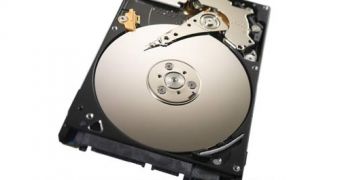Solid state drives haven't had anything to stop their steady increase in market share at the expense of hard disk drives, but it might just be that a certain move on Seagate's part could finally stave them off, at least for a while.
Back in June, Seagate announced 7 mm-thin Momentus Thin 2.5-inch HDDs, which go from 160 GB to 320 GB, have 16 MB cache and 5,400 RPM or 7,200 RPM.
This makes them very suited for mobile platforms, even handheld tablet computers, especially knowing the great price and capacity advantage over SSDs of similar size.
The ARCHOS 80 G9 and ARCHOS 101 GB 8- and 10-inch tablets already employ the Momentus Thin and cost $279 and $349, respectively, quite the far cry from slates that cost $500 or more while having just 16 to 64 GB of NAND Flash capacity.
Apparently, Seagate's Momentus Thin made enough of an impression to give analysts cause to consider the possibility that SSDs may fail to keep stealing market share if such thin platter-based solutions become more widespread.
“Although shipments of SSDs for notebooks will be miniscule compared to HDDs during the next few years, the solid state drives are shaving off points of market share that are critical to maintaining the growth of the hard drive business,” said Fang Zhang, analyst, storage systems, for IHS.
“Furthermore, SSDs are universally employed in media tablets, which are eating into the sales of notebook and netbook PCs. Seagate’s new Momentus Thin HDD represents an attempt by the hard drive industry to answer the challenge of SSDs in notebooks—and even in media tablets—by undercutting the cost of solid-state drives while providing higher densities.”
Of course, HDDs still have their own disadvantages, like a higher power consumption (leads to shorter mobile product battery lifespans) and a higher weight.

 14 DAY TRIAL //
14 DAY TRIAL //